12 Tips to Start a Successful Kindergarten Year
How to start kindergarten on the right foot with 12 tips to start a successful kindergarten year. These tips to start kindergarten successfully will cover setting procedures, using the alphabet and names in addition to connecting with parents.
Starting kindergarten successfully is a planned event and these 12 tips can be applied whether you are a new teacher or have been teaching for years.
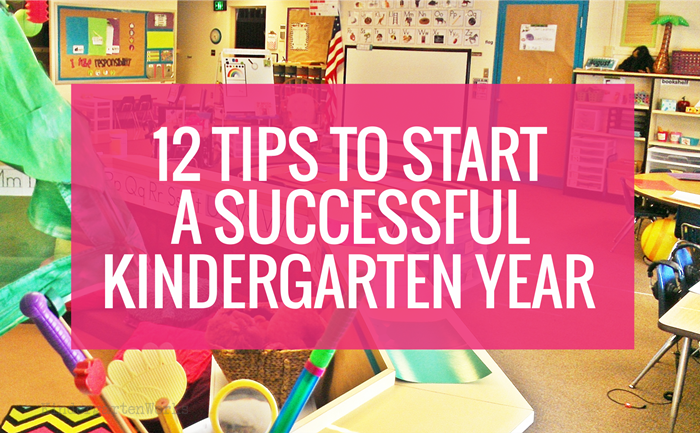
Setting the foundation for strong readers and writers can begin the first week of kindergarten! I’ve got a few ideas and resources to point to that helped me get my year off to a great start.
Looking back to what worked well, I hope these tips and resources can help you gather for next year or remind you of just how far you’ve already come from the beginning of the year with your class!
Set up classroom management & procedures
1. Have a kindergarten classroom management plan in place. Even if you think you may want to tweak it later on.
Get it down in writing for yourself!
Come up with short phrases you think you can use to refer to often and decide what language you want to use so that when the time comes day one, you’ll feel prepared and won’t be searching for the right words.
For example:
- “Make a better choice.”
- “You chose to…”
- “This is your warning for…”
2. Be prepared to explain the why behind procedures and choices in short, concise terms.
My favorite is explaining why we will follow directions the first time, and explaining what a fun teacher I am if I have to explain things 23 times, 23 times, 23 times, 23 times…
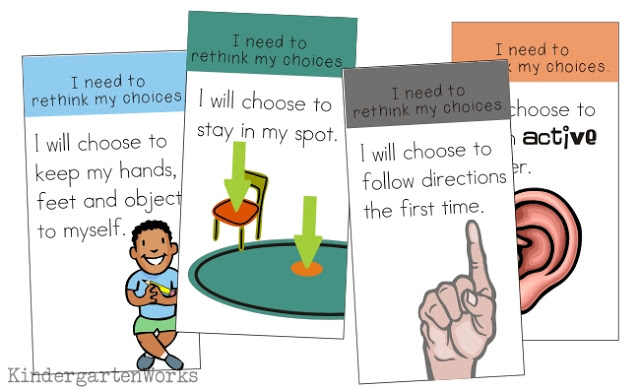
3. Consider how updating a color card or clip chart system can work for you to help keep track with students, but best communicate to kinders and parents about their choices.
Often these systems put emphasis on colors to help track choices, but it’d be best if the colors can be used in connection with your classroom system as a way of reporting choices. That way the colors are not the focus.
For example, I used “think cards” in my classroom. These are cards a student has to reflect upon if they have chosen not to follow a classroom rule or procedure. They speak a positive confession like “I will {insert good choice}.”
They do use colors like the typical color card system to then report home the number of think cards or the number of great choices they made. They are much more likely to remember their choice if that is the focus during the day as opposed to just a color.
4. Plan for both the positive and negative.
Of course, we want to focus on the positive! Something new I am trying this year and love the flexibility with is using reward coupons for students who have made excellent choices. These are free once you have them in place and they love the choices.
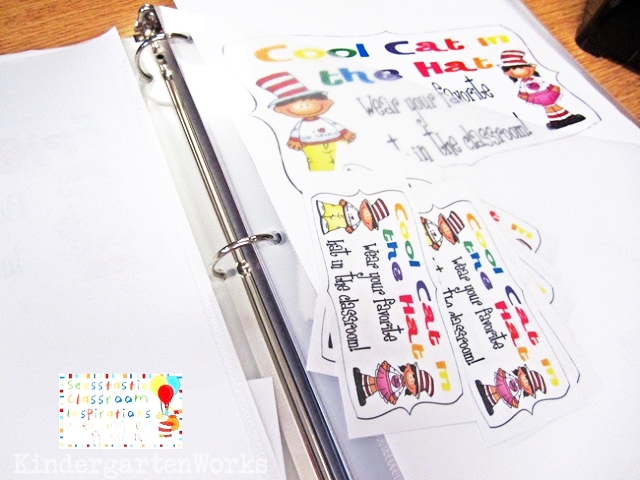
But you’ve got to make a plan you’re willing to follow through with for both the positive and the negative. I didn’t want anything elaborate – that’s not my style.
5. To incentivize in the moment, if you have a great-smelling chapstick in hand – you’re good to go!
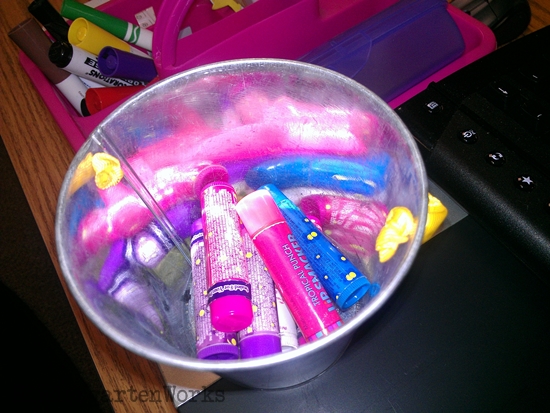
I fondly call them “smelly spots” and these are treasured, invisible marks used in our classroom to reward little moments to recognize great behavior, citizenship or responsibility.
Students love recalling their excellent choice each time they get a whiff of the back of their hand.
Alphabet
6. Learning the alphabet is what we do! And learning it as fast as possible seems to be our goal with the new Common Core Standards.
Why not practice letter sounds right alongside identifying letters so you also meet the needs of those who are ready?
The (affiliate) Letter Factory Video is a great way to promote the sounds the first couple weeks of school. You can shorten it to a half-hour after watching the entire thing once.
By just reviewing the alphabet portions you may find that students can connect a physical and kinesthetic motion to each letter of the alphabet which you can easily incorporate into any alphabet chart or chant!
This video is a great example of how easily you can use the /a/ as a “frightened” motion to always refer to for your kinesthetic learners.
Use student names
Starting with student names is a classic way to begin working on letter recognition, sight words and sound production. So, how can you effectively use names?
7. Create class books the first weeks of school that feature their names. These quickly become the most read books, since they learn quickly to read their friend’s names and feel successful at “reading!”
You can pretty much make a name-focused class book based on any book you read to your class the first week of school. Take these ideas for example:
- Class book for The Kissing Hand
- Class book based on Chicka Chicka Boom Boom
- Class book inspired by Pete the Cat
8. Actually plan which names you can use right away in your interactive writing and which names you can use later on as you grow in phonics so that you always have a “go to” list.
I write down who will be our anchor names for bits like “er” or “br” since these will help us become effective word detectives (later on in the school year).
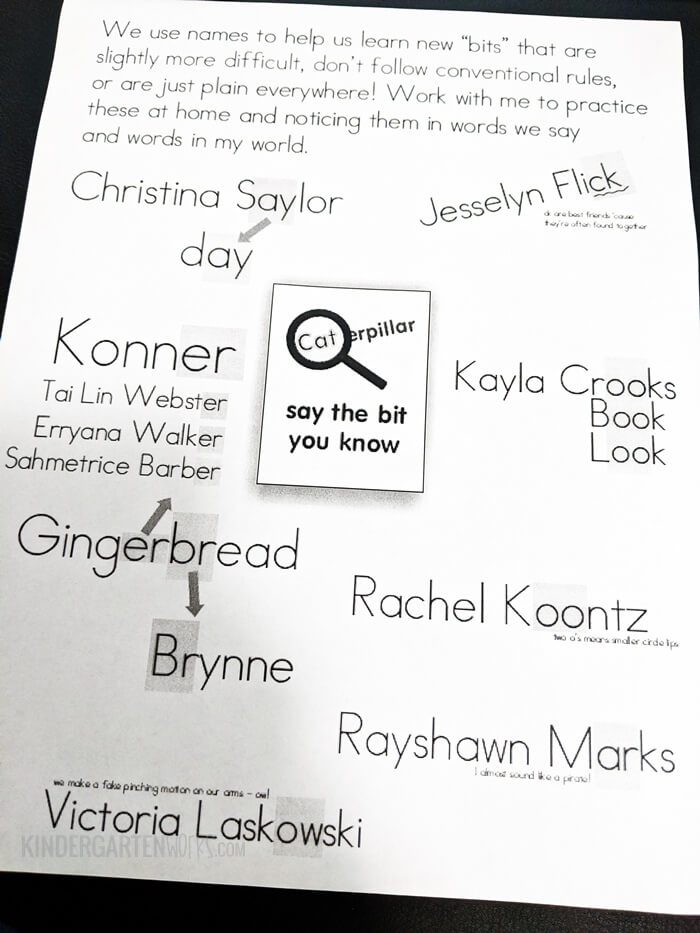
Don’t forget to go to last names if you’re in need of trickier sounds eventually, but usually you’ll be amazed to find exactly what you need in your class roster.
9. Put their names everywhere and in mobile places so they can always carry a model to wherever they are working in the classroom. Pencil boxes are a great solution to making this work!
Hit the basics
I’d be at fault if I didn’t say that kinders need to practice the basics. Oh boy, do they ever.
This year I am thankful that we included secret gluing techniques into our first weeks of school and edified great lunch procedures {an activity that gave us great cutting and gluing practice}.
The best tip I have to getting down the basics of whatever multi-step process you have going on is to create a social story for it.
Create an actual book with simple text and photos of you following each step. Not only will this help students with special needs, but it will help all students live through the experience before they ever do it.
The power of literature.
Yep – even literature written by moi.
Social stories to consider creating:
- lunch line procedures / table procedures
- classroom bathroom procedures
- preparing to go home
- hallway procedures or specials
Why feature yourself?
Because on the first day, you are the superstar and the only one they’ll know. Make yourself the main character and they will love it.
Plus, you’ll love the opportunity to sit {phew!} read a short story that is teaching exactly what you want them to know in preparation for the next 10-15 minutes of your day.
Connect with parents
Making a connection with parents is part of our job, and as uncomfortable it can sometimes be to calm parent fears at the same time as kinder ones, it comes with the territory.
What can help?
1. Have an open house or informal meeting night where students can meet you, drop off supplies and you can get materials needed for the first day into parent hands. They’ll feel better knowing what to expect.
2. Have a parent-friendly class procedures letter ready to go home day one. Make every topic short, relevant and include clipart. Make it attractive so parents will want to read it.
Keep it brief.
Mention hot topic things that most first-time school parents will want to know like: gym shoes on which days, library books due what day, birthday treat policy, homework policy, book logs for at home reading, sending money to school {your preference} and student daily folders.
Include your preferred method of contact and also send it by email once school has started, so they can always have a reference copy.
3. Call them. Yep. Just do it. It does take your time. Its not comfortable. Do it anyway.
I always “knew” that it was a good thing to do and that it would be appreciated by parents. This year was the first year I actually did it. I called after the first week just to let them know their child had a good first week {no matter what} and wanted to see if they had any questions. A little time on the front end can have a huge pay off over the entire year.
It’s a great way to start that phone documentation log you always knew you should have going.
I hope you find these 12 tips of value to you as you start your kindergarten year successfully!
If you like what I do here on KindergartenWorks, then be sure to subscribe today. I look forward to sharing ideas with you weekly.
Feeling a little overwhelmed at the idea of starting out in kindergarten? Get my best stuff on starting kindergarten sent directly to your email over the next 2 weeks with my free Back to School Bootcamp course and be on your way to feeling more prepared than ever!

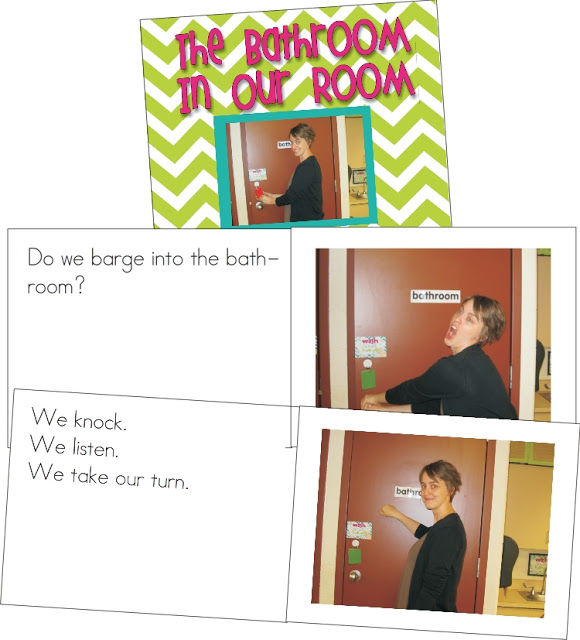
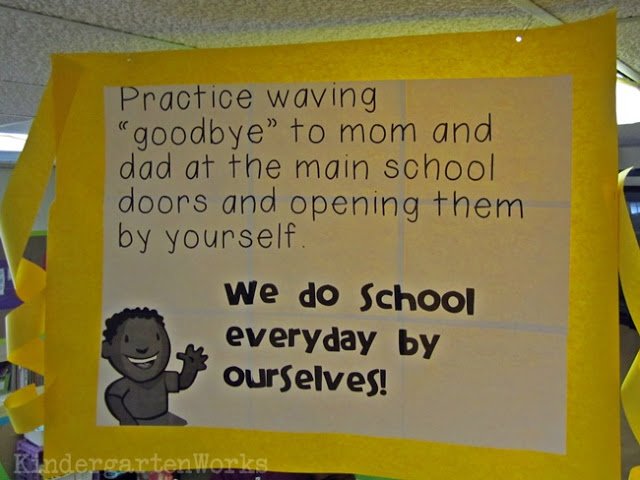
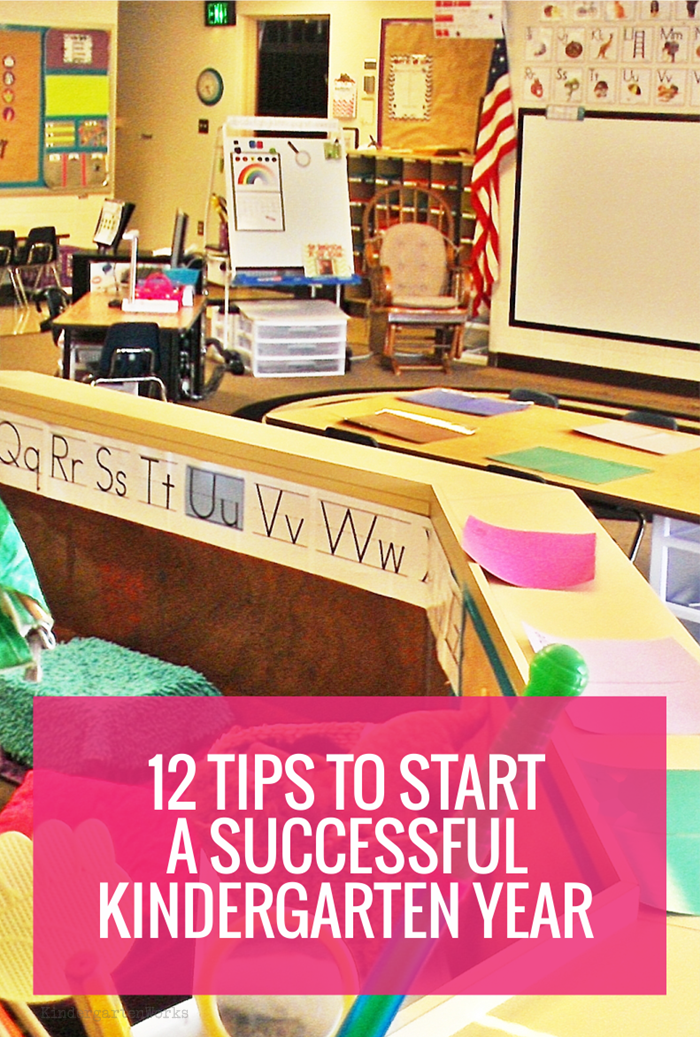
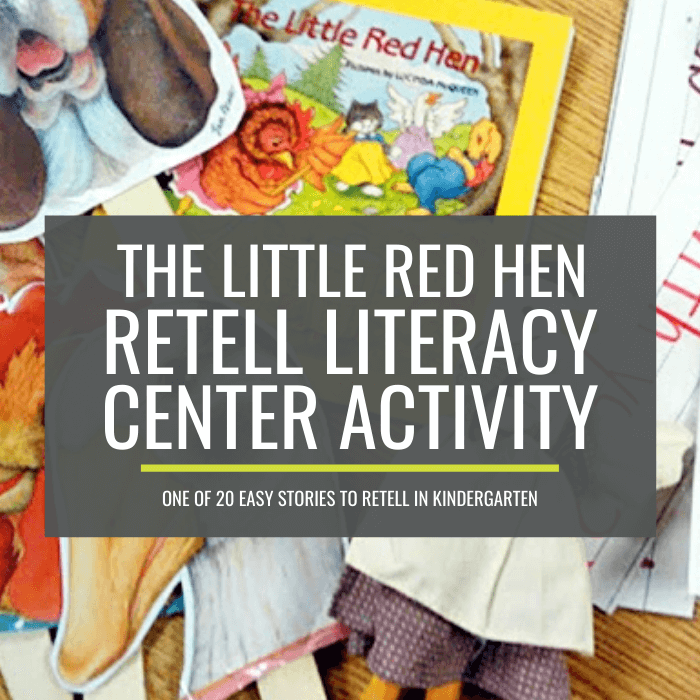

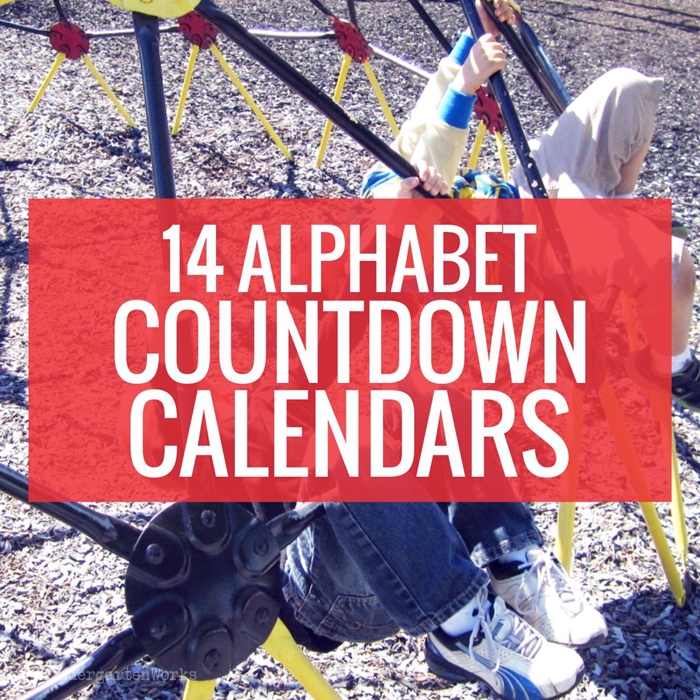
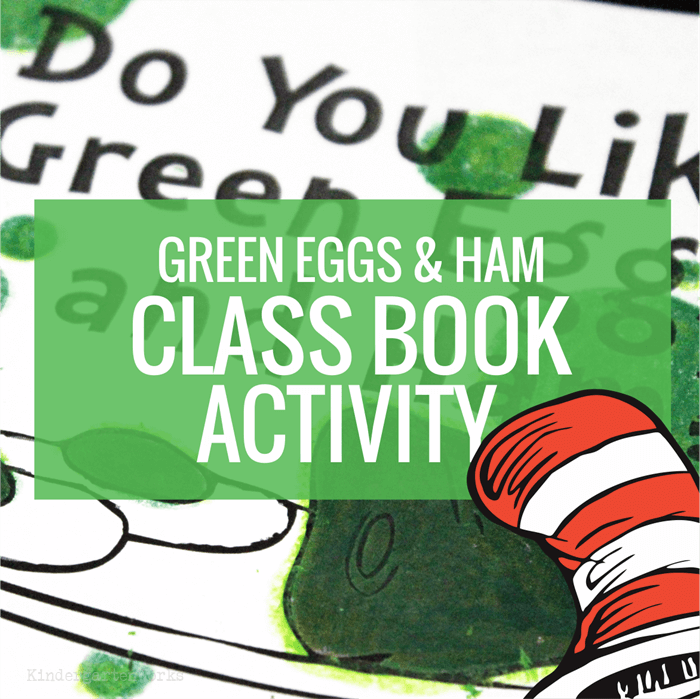
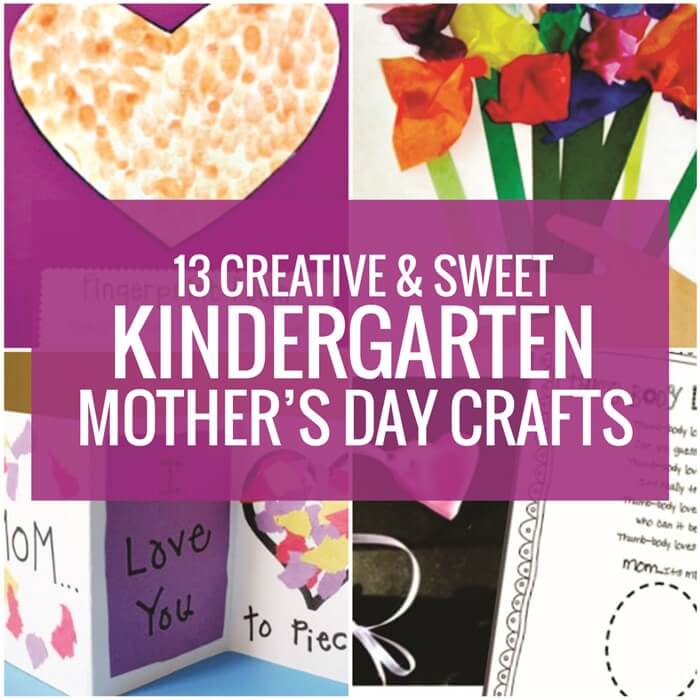
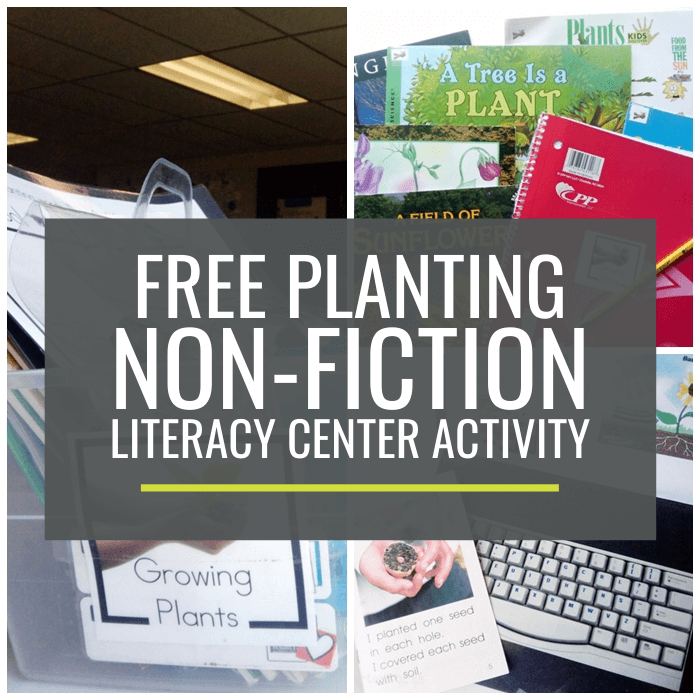
Thank you so much for these! Three years ago, I started teaching KG and this helped me a lot!
You’re welcome Carmen. I’m so happy they could be helpful to you!
– Leslie
Thank you so much for the free boot camp! Returning to K from 6th grade is exciting but a little scary! I also love your lesson plan bracelet idea and may tweek it a little… laminate it and hole punch it to add it to my lanyard to glance out during the day.
Thank you!
Yaaaaasssss!!!
Thanks !
I absolutely love these ideas! I just shared this page. I love the ideas of the send home classroom procedure books.
Just some food for thought…
The past seven years of teaching kindergarten, I have utilized a
Stoplight Behavior Chart. Green stood for good, yellow was received
after 3 warnings stood for uh-oh, and red was after an additional
warning and a note went home. The biggest problem I had with this
behavior chart was that neither I nor the students could always remember
exactly what they did to receive a note home. At the end of this year, I
thought to myself what the point of a behavior chart is if the students
and I could not remember the negative behavior they did.
So this year I found a solution! I created a Popsicle Stick Classroom
Management System! Each popsicle stick stands for an expected behavior.
This allows students to get direct reinforcement for a particular
behavior skill. Find out more at https://kindergartensailors.wordpress.com/2016/07/13/classroom-management/ or here https://www.teacherspayteachers.com/Product/Classroom-RulesBehavior-ChartClassroom-Management-2636412
Popsicles are easy to use! Good thinking – yes, i’ts important to focus on the behavior to improve upon instead of just the color.
– Leslie
Informative commentary . For what it’s worth , if someone require to merge PDF or PNG files , my husband merged a service here
http://goo.gl/4ILp1cThank you Leslie. That was the little light in my day. My second year teaching kindergarten after teaching for many years. Pretty hard some days….
Hi! Wow I love the think cards! Do use you this in combination with a typical clip chart (green,red,yellow). This will be my first year teaching kinder and I’m trying to decide how I want to go about rewards/consequences. I’ve been reading articles all about the “clip chart debate”. Thank you!
Hi,
Yes, I have used them in combination with a clip chart. Welcome to the teaching world of kindergarten. If you haven’t I highly recommend reading the (affiliate) book Conscious Discipline (http://amzn.to/1ehIXVj) – it may help you draw your own conclusions and find the right solution for you.
– Leslie
Leslie,
You mentioned planning for positive and negative; you told us about the positive reinforcement, but you didn’t mention any consequences for poor choices. Do you use anything besides the think cards? Thanks, great post!
Jeremy
Hi Jeremy,
Yes I have used the think cards in combination with the color system. But I also am a firm believer in immediate time-outs/removals from an activity for 2 mins. since that can make a difference. Thanks for the compliment.
– Leslie
As a first year kindergarten teacher, I found this post very helpful! Thank you for sharing your first day procedures and great tips!
I love the social story idea! Thanks.
Glad to hear!
– Leslie
Thanks for the tips! I love them!!
These are great ideas for *every* teacher, not just teachers of Kinders.
Thanks TeacherTess 😉
This is a great post, Leslie. So many good ideas!
My favorite, you ask … “We do school everyday by ourselves.” — I might just start working on that poster today. 🙂
Thanks for sharing your favorite Katharine!
– Leslie
Im sorry that the main thing I noticed in this is the use of the name “Victoria Laskowski” That is my last name! I never see it anywhere!
Juliane,
This made me laugh! I never use real names or combinations of real names of my students, but I will mix it up and use names I’ve come across in my past. I’ve never taught a Laskowski, but I went to school with one. Ha! Funny 🙂
– Leslie
I love the Chicka class book! Thank you!
Oh do you have your think cards on TpT?
Yes m’am! http://www.teacherspayteachers.com/Product/Behavior-Plan-and-Parent-Notes – thanks for asking
I am bookmarking this to make sure i re-read it over the summer. Such great ideas! I love how you pulled out the blends in their names!
These are great tips, Leslie. I especially love your ideas for social stories (your pictures are fabulous!) and using students’ names for word bits. Renee
Thanks Renee for taking the time to comment and share your thoughts. It means a lot! I honestly had a lot of fun taking those photos… perhaps too much!
– Leslie
Once again I’m walking away with ideas that will help my kiddos (and in turn help me)! Thank you! I have a larger group of kids not getting blends, as much as I use names in the room I never thought of looking at the chunks! I’ve also been looking for more technology (every kiddo has an ebook although I only have 2 head phones at this point) for reinforcing letters, sounds, and basic reading. The Leap Frog was a favortie here at home 13 years ago so I’m excited to see it still around! Thanks again Leslie!
Melissa,
Its great to hear what you took away from this article! Hope that finding chunks in your kinder’s names will play a big role in developing their reading skills.
– Leslie
Thank you so much! This post is so full of useful ideas and information. Excellent work!
Kirra
I just LOVE your blog!! I do many of these things as a fellow K tchr! I LOVE the idea however of using names to teacher harder phonic “bits” LOVE LOVE. Gonna try to figure out how to include that yet this week w/ our final vowel sounds / patterns! AND I think I will pull it back in to review all the sounds!! LOVE LOVE!
Thanks!
Sarah
[email protected]
Sarah,
I always love hearing from you! Glad to hear that these tips are things you’re already trying. Let me know how the phonics and sound patterns go using your kinders’ names!
– Leslie
Thank you, Leslie!!!!!!! This is VERY helpful. It is useful & fun to read. This is my 30th year teaching K, & it is still good to be reminded & internalize these things. Keep up the great work! You are a gem!
Thanks for sharing your kind words Sms! I know it’s only January, but it is hard to believe how far we come each year and how we have to start fresh. You’re probably a pro with all of your experience, so any tips you want to throw our way would be awesome too!
– Leslie
This is a great post! I love all of the ideas. Most of them work for second graders too! Thanks so much for sharing!
Hilary
Second Grade is Out of This World!
Thanks Hilary – that’s neat to know it could translate to second grade in most areas!
– Leslie